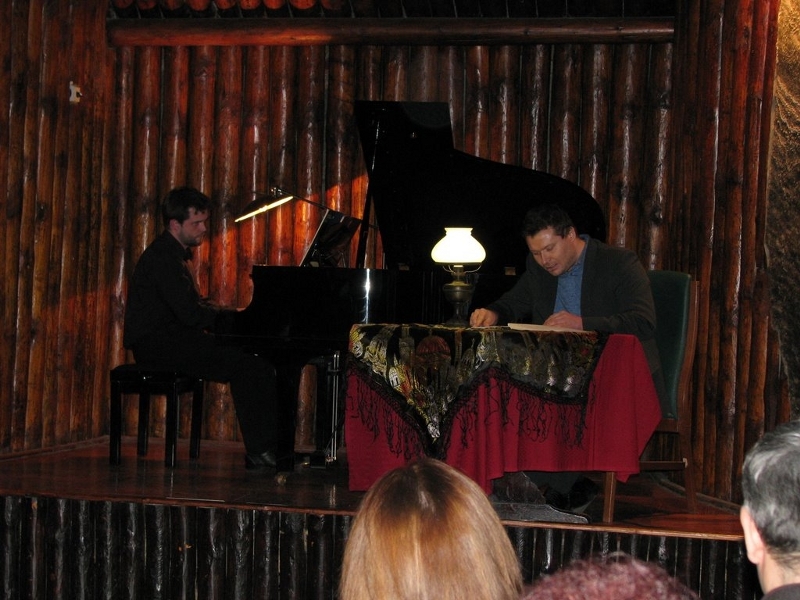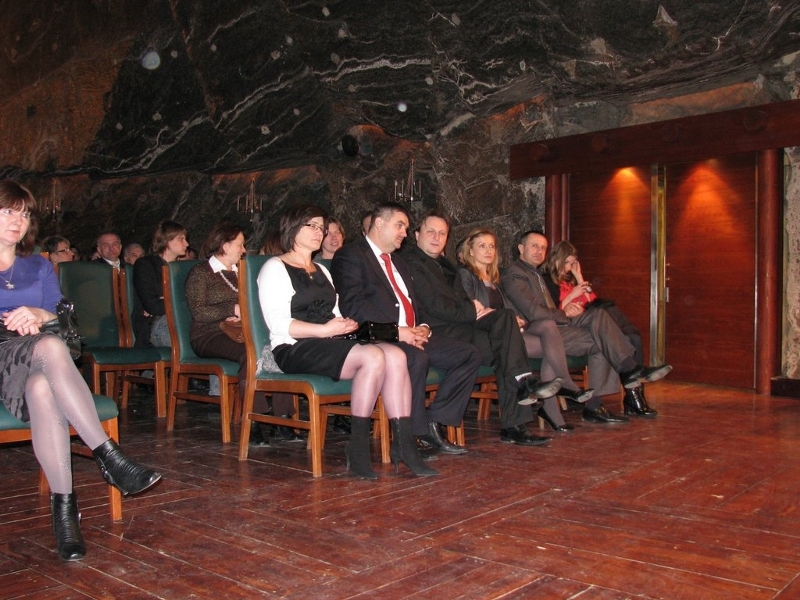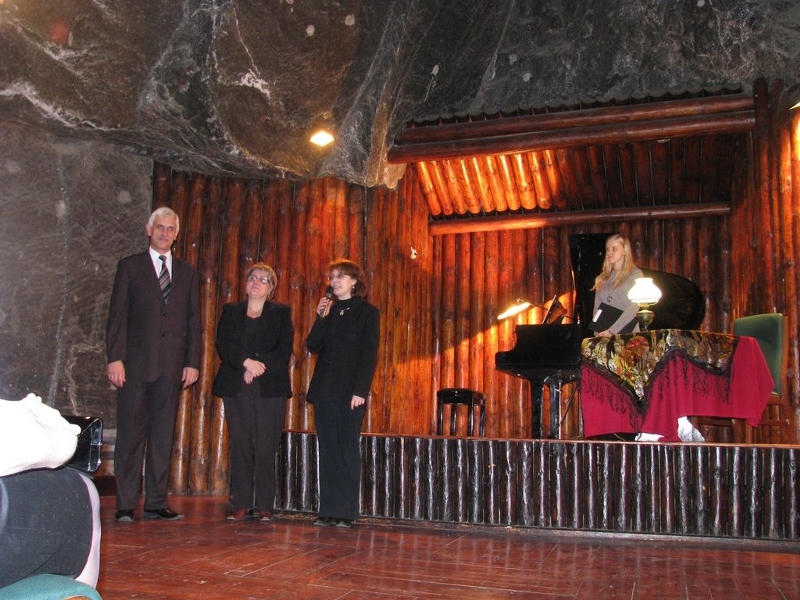niedziela, 31 października 2021
sobota, 30 października 2021
piątek, 29 października 2021
czwartek, 28 października 2021
środa, 27 października 2021
Fwd: Newsletter - Die neue Aufrüstungskoalition
Od: German-Foreign-Policy.com <newsletter@german-foreign-policy.com>
Date: śr., 27 paź 2021 o 21:16
Subject: Newsletter - Die neue Aufrüstungskoalition
To: <andrzej.czerwinski22@gmail.com>
Newsletter - Die neue Aufrüstungskoalition
(Eigener Bericht) - Die Beschaffung von Kampfdrohnen durch die mutmaßliche künftige Regierungskoalition und voraussichtlich auch die Bestätigung der "nuklearen Teilhabe" durch SPD, FDP und Bündnis 90/Die Grünen rücken näher. Wie sich aus einem neuen Positionspapier einer SPD-Projektgruppe ergibt, zieht die Partei ihre bisherige Weigerung, Kampfdrohnen zu beschaffen, zurück und öffnet sich dem Vorhaben - unter dem Vorwand, es diene nur dem Schutz deutscher Soldaten. Mit dieser Begründung hatten bereits Bündnis 90/Die Grünen ihren Widerstand gestoppt. Auch bei der "nuklearen Teilhabe" haben längst Rückzugsmanöver begonnen: Während die SPD in all den Jahren ihrer Regierungsbeteiligung an der Option festgehalten hat, deutsche Tornados im Kriegsfalle auch US-Atombomben abwerfen zu lassen, hieß es bei Bündnis 90/Die Grünen zuletzt, man könne "nicht einfach sagen, wir schicken die US-Atomwaffen mal eben zurück in die USA". Die scheidende Verteidigungsministerin Annegret Kramp-Karrenbauer hat mit ihrer Ankündigung, bei Bedarf nukleare "Mittel" gegen Russland einzusetzen, einen diplomatischen Eklat ausgelöst.
Weiterlesen
https://www.german-foreign-policy.com/news/detail/8747/
(...)
wtorek, 26 października 2021
OPINIA PUBLICZNA
niedziela, 24 października 2021
sobota, 23 października 2021
wtorek, 19 października 2021
THE MOUNTAIN PEOPLE by Colin M.Turnbull
THE MOUNTAIN PEOPLE by Colin M.Turnbull
Touchstone 1987. ISBN 0-671-64098-4.
| Colin Turnbull was an anthropologist with a special interest in the hunter-gatherer societies of Africa. He lived in the rain forests of Zaire and also in the mountainous areas that border Uganda, Sudan and Kenya. This book is an account of his observations in the latter region. He writes about the semi-nomadic tribes that traditionally move around and across the frontiers herding cattle, hunting game and engaging in some simple cultivation to supplement the collection of vegetables, roots and berries. The tribe that he studied in detail called themselves the Ik and had always had their temporary villages in the higher mountains of Uganda. This was a distinguishing feature that differentiated them from other groups such as the Turkana who were plain dwellers and cattle herders. He and his colleague Joseph Towles spent the better part of three years with them between 1964 and 1967. The interest of the narrative is not so much the study of hunter-gatherer life ( do anthropologists study anything else? ) than the picture of transition that comes out of the book. The Ik started to get into difficulties at the end of the 2nd World War as the new nation states in the area "hardened" their frontiers. Previously the Ik had moved freely between all three countries hunting game in the Kidepo valley and following it through the mountainous areas into the Sudan. However the Kidepo area was declared a Ugandan National Park and they were no longer allowed to hunt there. Subsequently they had to make a permanent base on the inhospitable mountainous eastern edge of the Park, an area that had previously only been a temporary resting place. What follows is a narrative of serious non-adaptation as Turnbull shows that the traditional society of loose co-operation for hunting and weak family bonds is insufficient to meet the new challenge that the tribe faces. (top) | He shows in detail how survival becomes a personal affair. Food is no longer shared. Men hunt what they can and eat it far from the village and women collect only for themselves. As starvation sets in children and old people die as they are not fed, the tribe becomes known for its cattle thieving among the neighbouring groups. The thieving becomes intense among themselves and Turnbull interestingly shows how this becomes the new norm. Honesty becomes foolishness and lying becomes an art with Turnbull as the main target ( he had a Land Rover, cigarettes and plenty of food ). At this point one can ask whether 1) Turnbull is exaggerating in the interest of a dramatic story or 2) supporting a thesis which is, to quote, "my hope that we who have been civilised into such empty beliefs as the essential beauty and goodness of humanity may discover ourselves before it is too late." To answer 1) it would be useful to read an independent account by Towles if one exists. He is not a co-author of this book and only appears in it very briefly. All the same Turnbull does give cases where there is some residual co-operation and more honest individuals move away from the tribe. To answer 2), the story fits in too neatly with the new socio-biological view of the world ( Sociobiology: The New Synthesis. E.O.Wilson) where man can only be understood on the basis of his animal drives. Turnbull doesn't reflect that in similar times of big environmental change other groups are protected by knowledge / co-operation / law ( i.e. culture) so that things don't have to be the disaster that the Ik experience. When he states that; "we have been civilised into a belief in the essential beauty and goodness of humanity.", this must be taken as literary license but ignoring the odd rhetorical flourish this is still an interesting book that is worth looking out for. |
{Return to my Home Page and latest recommended book}{Return to other recommended books}
Fwd: Neues von literaturkritik.de 18 10 2021
Od: Literaturkritik.de Newsletter <newsletter@literaturkritik.de>
Date: pon., 18 paź 2021 o 23:04
Subject: Neues von literaturkritik.de 18 10 2021
To: <andrzej.czerwinski22@gmail.com>
Sehr geehrter Herr Czerwinski,
in literaturkritik.de sind die unten angegebenen Artikel neu erschienen. Bitte beachten Sie, dass diese zum Teil erst im Rahmen einer der nächsten Ausgaben und dort in bestimmten thematischen Zusammenhängen veröffentlicht werden. Die zur Zeit neueste Ausgabe erreichen Sie unter der Adresse: https://literaturkritik.de/aktuelle_ausgabe.php.
Stand: 18.10.2021
Vorbemerkungen zur Oktober-Ausgabe von Literaturkritik.de
Von Sascha Seiler
https://literaturkritik.de/public/rezension.php?rez_id=28306
Kanada als Ehrengast der Frankfurter Buchmesse 2020 und 2021: Hinweise mit Rückblicken in das Archiv von literaturkritik.de
Hinweise von Redaktion literaturkritik.de
https://literaturkritik.de/public/rezension.php?rez_id=28323
Isolation und Traumatisierung
Rezension von Anne Amend-Söchting zu
Claire Fuller: Unsere unendlichen Tage
Piper Verlag, München 2021
https://literaturkritik.de/public/rezension.php?rez_id=28320
Die Befreiung der Textweltmenschen
Rezension von Ulrich Klappstein zu
Giwi Margwelaschwili: Der Leselebenstintensee. Roman
Verbrecher Verlag, Berlin 2021
https://literaturkritik.de/public/rezension.php?rez_id=28316
Philipp Otto Runges Briefe – in vier Bänden herausgegeben von York-Gothart Mix
Von Redaktion literaturkritik.de
https://literaturkritik.de/public/rezension.php?rez_id=28291
„Friedenstaube im Fadenkreuz" – ein Roman des kanadischen Diplomaten und Schriftstellers Ian Thomas Shaw
Hinweis von Redaktion literaturkritik.de zu
Ian Thomas Shaw: Friedenstaube im Fadenkreuz. Roman. Deutsche Übersetzung von Heide Fruth-Sachs
Verlag LiteraturWissenschaft.de, Marburg 2021
https://literaturkritik.de/public/rezension.php?rez_id=28322
Macht Liebe sprachlos?
Rezension von Nora Eckert zu
Bryan Washington: Dinge, an die wir nicht glauben
Kein & Aber Verlag, Zürich 2021
https://literaturkritik.de/public/rezension.php?rez_id=28318
Nichts für Elise
Rezension von Andreas Urban zu
Husch Josten: Eine redliche Lüge
Berlin Verlag, Berlin 2021
https://literaturkritik.de/public/rezension.php?rez_id=28313
Vom ‚Dekameron' zur ‚Italian Theory'
Rezension von Chiara Sartor zu
Angela Oster; Jan-Henrik Witthaus: Pandemie und Literatur
Mandelbaum Verlag, Wien / Berlin 2021
https://literaturkritik.de/public/rezension.php?rez_id=28314
Familiendrama in New Orleans
Rezension von Monika Grosche zu
Jami Attenberg: Ist alles deins! Roman
Schöffling Verlag, Frankfurt a. M. 2021
https://literaturkritik.de/public/rezension.php?rez_id=28317
Geschlossene Dorfgesellschaft
Rezension von Anne Amend-Söchting zu
Angelika Klüssendorf: Vierunddreißigster September
Piper Verlag, München 2021
https://literaturkritik.de/public/rezension.php?rez_id=28319
Epidemie, aber in schön
Rezension von Martin Janda zu
Letizia Gabaglio: Die großen Epidemien. Geschichte – Gegenmittel – Impfstoffe
Midas Verlag, Zürich 2021
https://literaturkritik.de/public/rezension.php?rez_id=28299
Ein vergessener Wiener Expressionist. Wilfried Ihrig legt ausgewählte Feuilletons von Heinrich Nowak vor
Von Manfred Orlick
https://literaturkritik.de/public/rezension.php?rez_id=28301
Der Buchbetrieb im Exil
Rezension von Walter Delabar zu
Ernst Fischer: Geschichte des deutschen Buchhandels im 19. und 20. Jahrhundert. Drittes Reich/ Verleger, Buchhändler und Antiquare aus Deutschland und Österreich in der Emigration nach 1933. Ein biographisches Handbuch
De Gruyter, Berlin 2020
https://literaturkritik.de/public/rezension.php?rez_id=28311
Zum Tod von Jost Hermand: aus dem Archiv von literaturkritik.de
Hinweise von Redaktion literaturkritik.de
https://literaturkritik.de/public/rezension.php?rez_id=28321
Rache, Recht und Batman
Rezension von Franz Sz. Horváth zu
Fabian Bernhardt: Rache. Über einen blinden Fleck der Moderne
Matthes & Seitz Verlag, Berlin 2021
https://literaturkritik.de/public/rezension.php?rez_id=28308
Softporno mit Kinderteller
Rezension von Karl-Josef Müller zu
Brian Moore: Schwarzrock
Diogenes Verlag, Zürich 2020
https://literaturkritik.de/public/rezension.php?rez_id=28309
Deutscher Buchpreis 2021: Antje Ravik Strubel gewinnt mit „Blaue Frau"
Hinweise von Redaktion literaturkritik.de
https://literaturkritik.de/public/rezension.php?rez_id=28201
Eine Liebe in Deutschland
Rezension von Dietmar Jacobsen zu
Jenny Erpenbeck: Kairos. Roman
Penguin Verlag, München 2021
https://literaturkritik.de/public/rezension.php?rez_id=28310
Eine Entdeckung, die Beachtung verdient
Rezension von Günter Helmes zu
Christoph Ribbat: Die Atemlehrerin. Wie Carola Spitz aus Berlin floh und die Achtsamkeit nach New York mitnahm
Suhrkamp Verlag, Berlin 2020
https://literaturkritik.de/public/rezension.php?rez_id=28307
Mit besten Grüßen
Ihre Redaktion von literaturkritik.de
Antworten an die Newsletteradresse können von uns nicht gelesen werden. Fragen oder Anregungen richten Sie bitte an redaktion@literaturkritik.de oder schreiben Sie einen Leserbrief auf unserer Seite http://www.literaturkritik.de/public/mails/leserbriefe.php.
Informationen über ein Online-Abonnement von literaturkritik.de finden Sie auf der Seite http://www.literaturkritik.de/abonnement.php. (....)
poniedziałek, 18 października 2021
Spotkanie autorskie z Marcinem Kydryńskim
-
- Strona główna

- Aktualności

- Spotkanie autorskie z Marcinem Kydryńskim.
Spotkanie autorskie z Marcinem Kydryńskim.
- Kategoria: Aktualności
- Utworzono: poniedziałek, 27 wrzesień 2021 r. (o godz. 8:20)

18 października o godzinie 17.00 serdecznie zapraszamy na spotkanie autorskie z Marcinem Kydryńskim.
niedziela, 17 października 2021
sobota, 16 października 2021
Rodem - Warszawianin, sercem – Polak, a talentem – świata obywatel…
„Rodem - Warszawianin, sercem – Polak, a talentem – świata obywatel…"
Niezwykle złożona, niepowtarzalna osobowość Chopina, wykazywała pewne rozdwojenie, które, wg słów Liszta, w końcu idealnie harmonijnie zestrojone znajdowało ujście w najwyższej twórczości.
 Chopin to wielki patriota,
Chopin to wielki patriota,


AKTUALIZACJA 16 października 2021 (2)
Did a black hole eating a star generate a neutrino? Unlikely, new study shows
czwartek, 14 października 2021
GDYBY Polska nie była uparta
środa, 13 października 2021
wtorek, 12 października 2021
niedziela, 10 października 2021
sobota, 9 października 2021
Fwd: 50 Street Photography Tips by ERIC KIM
Od: ERIC KIM <newsletter@erickimphotography.com>
Date: pt., 30 lip 2021 o 00:57
Subject: 50 Street Photography Tips by ERIC KIM
To: Andrzej Czerwinski <andrzej.czerwinski22@gmail.com>
50 Street Photography Tips by ERIC KIM
Dear friends,
I always find it good to distill what you know, based on your personal experience and wisdom. Some street photography tips I wish I could tell myself if I started all over again:
- When in doubt, shoot 25% more photos than you think you should
- If your photos aren't good enough, you're not close enough - Robert Capa
- The Dutch angle (tilting your camera and forcing a diagonal composition of a scene) is an easy way to elevate the dynamism of your compositions
- The best way to share your photos are on your own blog.
- Instagram is bad for your creativity
- The best camera for street photography is the newest digital RICOH GR camera
- Rangefinders are overrated for street photography. When we want a Leica M camera, we just want to become Henri Cartier-Bresson
- Monochrome will open up more street photography opportunities for you.
- Your first million street photos are your worst
- The best street photographers are Henri Cartier-Bresson, Josef Koudelka, then Richard Avedon
- 28 MM is the ideal focal length for street photography if you use a camera with an LCD screen. If you use a viewfinder that you bring up the camera to your eye, then 35mm is ideal.
- The best perspective in street photography are either super low or super high up. Avoid shooting street photos at eye level.
- The most educational street photography book is Magnum Contact Sheets, then 100 Lessons from the Masters of Street Photography
- Capturing strong emotions in street photography is more important than capturing strong compositions and in street photography.
- Rather than asking yourself whether it is a good street photo or not, ask yourself whether you care for the photo or not.
- If you shoot it outside of your house, then it is a street photograph.
- The best way to improve your street photography is to practice, buy books not gear, and travel. Experiences are the best bang for the buck for improving your photography.
-  The best shoes for street photography are the most minimal with the least amount of cushioning. This is either water shoes, minimalist shoes, Vibram five fingers, or Nike free shoes.
- To increase your photographic productivity, shoot in small JPEG with in camera filters and presets. For example high contrast Monchrome black and white photos in Ricoh G3, or color filters for Fujifilm digital cameras like the classic chrome filter.
- Apple photos is better than Adobe Lightroom to quickly select, favorite, and sync your photos to iCloud.
- The best cities in the world for street photography include Mexico City, Tokyo, Osaka, Kyoto, Saigon, Hanoi, downtown Los Angeles, Chicago, New York, and San Francisco (no particular order) 
- To become a more productive street photographer, best not to own a car. This will force you to take more public transportation and walk, which will open up more street photography opportunities to you.
- You don't have to have humans in your street photos, but you should have a sense of humanity in your photos.
-  The best diet for street photographers is a ketogenic diet mixed with intermittent fasting.
- The best workout for street photographers are heavy kettle bell swings.
- The best Youtubers to follow on street photography are Kaiman Wong, and Samuel street life.
- The best bang for the buck film camera for film street photography is a Leica M6, and the best bang for the buck lens for street photography film is the Voightlander 35 mm F 2.5 color skopar. Follow Japan Camera Hunter Bellamy Hunt for anything film related.
- The most innovative modern street photographer is Dirty Harrry from Greece.
- If you're curious about flash street photography just try it out. It will open up a great deal of extremely interesting street photo opportunities.
- To make stronger compositions in street photography, better to subtract from the frame than to add to the frame.
- The best color street photographer is Alex Webb. The Suffering of Light is the best color street photography book.
- The best black and white street photography book is Exiles by Joseph Koudelka. 
- Color street photography is more difficult and challenging than black and white street photography.
- Street photography is good for the soul. Treat it like walking meditation and walking therapy, and your artistic and creative outlet.
- Better to ask for permission in street photography and get rejected then to never ask at all. Also, asking for permission in street photography is more difficult and challenging than shooting without permission and candidly.
- The triangle composition in street photography as the most simple yet effective street photography compositions.
- Street photography is more of an approach and ethos than a strict definition and genre.
- Best to define street photography for yourself, and allow your definition of street photography to evolve over time.
- The more difficult it is to shoot a certain street photograph, the more likely it will be unique and more difficult to replicate.
- Imagine whether 300 years from now whether your street photos will still ring an emotional bell with your future viewers.
- To capture more depth in your street photos, focus on what is furthest away from the scene.
- The best technical settings in street photography are autofocus, Program (P) mode and auto ISO. "Just set it and forget it".
- When reviewing and editing your photos (image selection) remember the adage: "When in doubt, ditch."
- The most important thing to know in your photography: "Why do I make photos?"
- Street photography is like driving: it is not a matter of if you will ever get into an accident, but when. In other words, always be ready for a confrontation in street photography and take it as a mark of pride.
- Longevity is the best marker of 'success' as a photographer.
- The best street photographers are not on social media. And don't forget-- street photography is not a contest, but a personal pursuit and creative endeavor.
- COVID-19 has changed the game for street photography-- now is your chance. Strike the iron while it is hot.
- Start your own street photography blog, and share your experiences and personal wisdom.
- Every photo you shoot is a stream of becoming.
Never stop learning: STREET PHOTOGRAPHY 101 >
If this inspired you, feel free to forward to a fellow street photography friend.